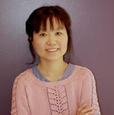Dry eye syndrome has become more common with the increasing use of electronics and diet changes. Eye drops are a common solution for the dry eye, but artificial tears are not always effective and do not treat the root cause of dry eye: poor eye circulation and the dysfunction of the tear glands and tear film.
A review study published in 2018 in BMC Complementary Alternative and Medicine by Bong Hyun Kim compared different acupuncture protocols for treating dye eye syndromes. This review is based on 19 randomized controlled trials with 1126 patients in 10 databases, which compared the effects of acupuncture and artificial tears on dry eye syndrome. The studies showed that acupuncture plus artificial tear treatment had a weaker effect in increasing tear break up time, but a stronger effect on the Schirmer test, which measures tear production. Overall, combining acupuncture and artificial tears has a better effect than acupuncture alone. Furthermore, treatments longer than 1 month were more effective than shorter treatments. Interestingly, twice a week treatment was more effective than 5 to 6 times treatment. In order to achieve the best result, treatments lasting more than 1 month are better than the ones for less than 1 month. Clinically, at least twice a week seems to be an optimal frequency.
According to Shin et al., the effect of acupuncture on dry eye syndrome occurs by dilating blood vessels and increasing the supply of neuropeptides (e.g., calcitonin gene-related peptide). However, their analysis implied positional specificity. The studies that included points BL2 and ST1 were less effective than those that did not include those points. This could be related to the analgesic effect of acupuncture. ST1 is located between the eyeball and the infraorbital ridge, directly below the pupil, and BL2 is located at the medial end of the eyebrow. They are thus near the supraorbital nerve block and infraorbital nerve block sites. These two nerves innervate the conjunctiva and decreased conjunctiva sensitivity, which may decrease tear production. Therefore, clinicians should select acupoints according to patient symptoms.
Dr. Li Zheng is a licensed acupuncturist and herbalist and graduated from the Beijing University of Chinese Medicine. She holds a PhD in neuroscience from the US and is a Harvard Medical School-trained researcher and a professor at the New England School of Acupuncture. For more information please visit https://bostonchineseacupuncture.org/

Post new comment
Please Register or Login to post new comment.